Vices of the Mind: Fake News, Conspiracy Theories, Bullshit etc...

Interview by Richard Marshall.
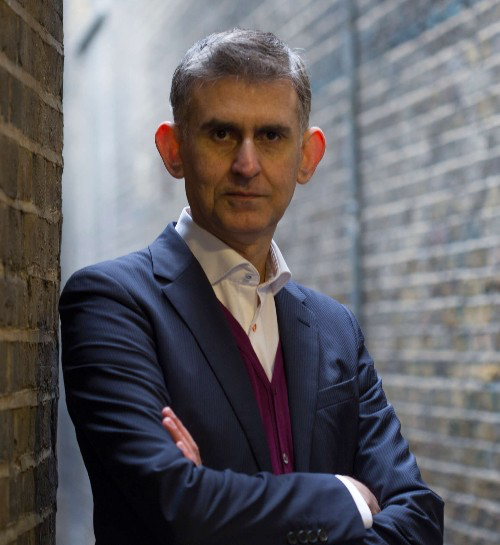
' I now see conspiracy theories in political rather than epistemological terms. The first thing to say is that, as Rob Brotherton points out in his book Suspicious Minds, a conspiracy theory is not just any old theory about a conspiracy.'
' The challenge for us as knowers is to know how to locate the relevant resources and use them properly. That’s partly a matter of knowing who to trust. On the reality of the Holocaust I’m justified in trusting Evans but not Irving. It’s not hard to figure out why that is.'
'Obstructivism requires that epistemic vices get in the way of knowledge systematically and ‘systematically’ doesn’t mean ‘invariably’.'
'He is, as has been pointed out by others, the Dunning-Kruger President. Some of us, like Trump, are destined to remain self-ignorant.'
'In my view, the turn to political violence is best explained and understood by reference to specific and idiosyncratic features of a person’s life history.'
'The forces of darkness that have seemingly been on the rise everywhere in the last few years have to be dealt with differently.'
Quassim Cassam is interested in epistemology, conspiracy theories, terrorism and counterterrorism and medicine. Here he discusses disappearing knowledge, conspiracy theories, how we can protect knowledge from threats of erosion, epistemic vice as Obstructionism, whether epistemic vices might sometimes be ok, Trump and Brexit, the role of expertise, comparing epistemic vices to moral vices, terrorism, why much contemporary philosophy hasn't engaged with these issues, and what difference philosophy can make regarding them.
3:AM: What made you become a philosopher?
Quassim Cassam: I studied P.P.E. (Philosophy, Politics and Economics) at Oxford. When I started, I planned to concentrate on Politics and Economics but quickly discovered that I loathed Economics. It took a while for me to become seriously interested in Philosophy but was hooked by a couple of things: reading Kant and Strawson and attending Charles Taylor’s brilliant seminars on Nozick’s Anarchy, State and Utopia. I also remember some inspiring tutorials on Wittgenstein’s Tractatus with James Griffin, who was my main undergraduate tutor. When I graduated, I thought seriously about going to law school but decided in the end to stay on to do graduate work in Philosophy. I was lucky enough to be supervised by Strawson and even luckier to land a job teaching Philosophy at Oxford as soon as I finished my doctorate.
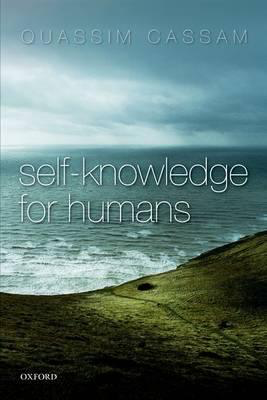
3:AM: You’ve examined different aspects of epistemology and how the philosophical issues they raise link with urgent real life issues like terrorism, fake news and conspiracy theories. So let’s start with your thoughts about disappearing knowledge. First of all, can you sketch for us how it’s possible to erode knowledge in a way that helps us understand conspiracy theories? How easy is it to erode knowledge just by questioning it? Is this how climate change denial works, for example – and do you think climate change or holocaust deniers really do make us not know that climate change is happening and that the Holocaust happened?
QC: Suppose you think, as I do, that knowing that something is the case (e.g. that the MMR vaccine is safe) requires being reasonably confident that it’s the case and also having the right to be confident. In that case, anything that effectively undermines my confidence or right to be confident is a threat to my knowledge. So, for example, getting me to doubt the safety of the MMR vaccine by spreading spurious but convincing stories about links between MMR and autism can prevent me from knowing that it’s safe. You ask whether climate change deniers can make us not know that climate change is happening. That sounds odd but consider the MMR scare. Lots of parents who were previously confident that the vaccine was safe had their confidence shaken by the scare. They were no longer confident that the vaccine was safe and stopped vaccinating their children. That’s a case in which the effective raising of spurious doubts about something had a real impact on what people knew and what they did. They went from agreeing to no longer agreeing that the vaccine was safe. At that point, they no longer knew that the vaccine was safe.
3:AM: So how does something like a conspiracy theory work to erode our knowledge? Do you think that this ability to erode knowledge and instil doubt is done on purpose by those spreading these conspiracies around?
QC: I now see conspiracy theories in political rather than epistemological terms. The first thing to say is that, as Rob Brotherton points out in his book Suspicious Minds, a conspiracy theory is not just any old theory about a conspiracy. In my forthcoming book on conspiracy theories I talk about Conspiracy Theories (with a capital C and a capital T). These are theories with various special features that distinguish them from ordinary theories about conspiracy. One special feature is that they are typically used to advance a political or ideological agenda. So, for example, the function of Holocaust-denial Conspiracy Theories is to promote anti-Semitism. Regardless of the intentions of those who promote Holocaust denial, this is the actual function of their theories. Of course their intentions are malign too but the point I’m trying to get across is that Conspiracy Theories are forms of political propaganda, often right-wing propaganda. There are philosophers who say that no sensible person can fail to be a conspiracy theorist because it’s obvious that people often conspire. This is an absurd argument. Of course people often conspire but believing that doesn’t make you a Conspiracy Theorist in the sense that most people have in mind.

3:AM: So how do we protect our knowledge from this sort of assault? Should we rebut or ignore, or is there a better approach?
QC: Rebut where possible, otherwise ignore. Also, where Conspiracy Theories are used to promote a repellent political ideology, be sure to point that out. A good rule of thumb is: if you find yourself on the same side of an argument as a bunch of fascists or proto-fascists you really need to think again. The problem with the rebuttal approach is that we lack the expert knowledge for an effective rebuttal in many cases. But there are genuine experts we can appeal to. For example, I wouldn’t have known how to rebut David Irving’s theories about the Holocaust if I hadn’t read the work of the historian Richard J. Evans, who was an expert witness in the libel case that Irving brought against Deborah Lipstadt. There is lots of fake news on the internet but also plenty of actual information, including the information required to rebut theories like Irving’s. The challenge for us as knowers is to know how to locate the relevant resources and use them properly. That’s partly a matter of knowing who to trust. On the reality of the Holocaust I’m justified in trusting Evans but not Irving. It’s not hard to figure out why that is.
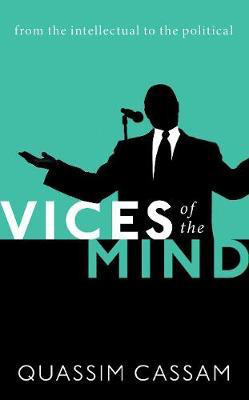
3:AM: Conspiracy theories – alongside bullshit and lies - seem examples of epistemic vice. Can you say what you say epistemic vice is?
QC: An epistemic vice is a personal intellectual failing – usually a character trait, attitude or way of thinking – that systematically obstructs the gaining, keeping or sharing of knowledge. In addition, epistemic vices reflect badly on the person whose vices they are. People can properly be blamed or criticised for their epistemic vices. I call my view Obstructivism. On this view, closed-mindedness is a character vice, an epistemic vice that takes the form of a character trait. Wishful thinking is an example of an epistemically vicious way of thinking. An example of an attitude vice is what I call ‘epistemic insouciance’, that is, not caring whether one’s assertions have any basis in reality. Epistemic insouciance is an attitude of casual indifference about the facts and that’s the epistemic vice that is the key to understanding the approach of a number of prominent pro-Brexit politicians. They give every impression of not giving a shit about reality, and the primary product of their epistemic insouciance is bullshit in Harry Frankfurt’s sense. Bullshit isn’t itself a vice but the product of a vice. I say more about this in chapter 4 of my book Vices of the Mind.
3:AM: Closed-mindedness, dogmatism, wishful thinking, prejudice and intellectual arrogance are all vices but can’t at least some of these vices be good for us knowers at least some of the time?
QC: Obstructivism requires that epistemic vices get in the way of knowledge systematically and ‘systematically’ doesn’t mean ‘invariably’. As for whether the vices you list are good for us as knowers at least some of the time I’d like to see the argument for that. So, for example, I can see that an appropriate degree of self-confidence is good for us as knowers but why arrogance? There are certain possibilities that you are justified in ignoring as an effective inquirer but is that the same as being dogmatic or closed-minded?
3:AM: Trump and Brexit and the 2003 Iraq War are examples you look at to give examples of what you identify as epistemic vices. Can you flesh out your thinking via one or some of these examples and how looking at Trump and other things help us demonstrate why the vices really are bad for us?
QC: I’ve already mentioned the role of epistemic insouciance in relation to Brexit. In the case of Iraq I draw on Thomas Ricks’ book Fiasco, in which he demonstrates how the staggering intellectual arrogance of senior members of the Bush administration led them to make catastrophic errors in planning the US invasion of Iraq. I also talk about the role of closed-mindedness in leading Israeli intelligence analysts to ignore compelling evidence of an impending Egyptian and Syrian attack on Israel in 1973. In the last two cases, people died as a result of failures of knowledge caused by epistemic vices. Brexit hasn’t killed anyone yet but if it turns out to be as disastrous as many Remainers believe then epistemic vices like epistemic insouciance and stupidity will have contributed to the disaster. Admittedly, vice explanations only get you so far. In the case of Brexit there is also outright cheating and rampant criminality to consider.
3:AM: We aren’t just victims of epistemic vice – we can also be practitioners as well. Sometimes it’s difficult to know we have the vices though isn’t it. Can you say why we find it difficult to self identify and is there something we can do to guard against that?
QC: Well, I guess we all like to think well of ourselves and that’s one thing that makes it hard to recognise our own epistemic vices. In addition, some epistemic vices are stealthy: they obstruct their own detection. This idea is related, of course, to the Dunning-Kruger effect. That’s where Trump comes in. He is, as has been pointed out by others, the Dunning-Kruger President. Some of us, like Trump, are destined to remain self-ignorant.
3:AM: Are these vices dependent on character in some way – is there a character flaw in those who practice these vices? And if these character traits are deep, then is there anything we can do about them? Can people be held responsible?
QC: Some, though not all, epistemic vices are character flaws. As for whether there is anything that we can do about our character vices, that depends on whether you think that character traits are malleable. I take the optimistic view is that it is possible to change one’s character to some extent. For example, it’s possible to train oneself to be more open-minded. It’s also possible to change how one thinks and improve one’s attitudes. In all of these respects I believe that our epistemic vices aren’t fixed and that we are also, at least to some extent, responsible for them.
3:AM: What’s the role of expertise in countering the vices – what do you say to those who say that we’re now living a post truth society or world and that everything is really opinion alone?
QC: Correcting one’s vices is largely something one has to do for oneself, though if one’s mission is to change one’s thinking then one might look for expert advice on how to do that. As for the notion that everything is a matter of opinion, that’s plainly absurd. It’s matter of fact rather than opinion that I’m writing these words. I am of the opinion that I’m sitting at my computer writing these words but it isn’t a matter of opinion that I am. As Bernard Williams once noted, some propositions are plainly true, that is, obviously true. There are, of course, complex questions of historical fact that are more a matter of interpretation but even these aren’t just matters of opinion. There are better and worse historical theories and, as Richard Evans points out, there is a difference between truth and lies in history. His theory about the Holocaust is better than Irving’s because it is supported by the historical evidence. What did or didn’t happen in Auschwitz isn’t a matter of opinion. Philosophers whose theories imply that it is have a lot to answer for. They are the philosophical equivalents of Kellyanne Conway.
3:AM: How far can we compare epistemic vices to moral vices? Does the analogy help?
QC: Epistemic vices are epistemic failings whereas moral vices are moral failings. Some epistemic failings, like closed-mindedness perhaps, might also be moral failings but not all. Gullibility is an epistemic failing but is it a moral failing? I doubt it.

3:AM: How does your thinking help us approach the phenomenon of contemporary terrorism, in particular, does it give us ideas about how we might counter the terrorist’s points of view? Presumably if we bombard the terrorists with counter-evidence, counter-factuals, knowledge that they deny etc etc then we can erode their certainty and so their claims to having knowledge. How do you resist the push back that they’ll claim it’s just lies and that there are no such facts? It seems that no matter what you throw into the mix the bullshitter, liar or epistemic bad person will always be able to do the same back. Is there a way tit for tat can be countered?
QC: My work on terrorism is unrelated to my work on epistemic vice. I focus on a question posed by the terrorism researcher Marc Sageman: what leads people to turn to political violence? There are lots of general answers to this question, including the idea that political violence is caused by radicalisation. Many governments talk about what they call ‘the radicalisation process’ and the need to understand it. In my view it’s misleading to talk in these terms. There is no such thing as the radicalisation process. I use a slightly frivolous analogy to make the point. If someone were to ask how people become Arsenal fans nobody would think that the right way to answer this question is to posit something called ‘the Arsenalisation process’. There is no such thing.
In my view, the turn to political violence is best explained and understood by reference to specific and idiosyncratic features of a person’s life history. There is no general answer to the question why people turn to political violence because people who move in this direction are historically specific particulars with their individual trajectories and interactions with different known and unknown environmental factors. Making sense of a particular individual’s turn to violence requires, among other things, a willingness to engage with their subjectivity. I call my view moderate epistemic particularism. It’s an approach to understanding terrorism that combines, and builds on, insights about particulars, psychological explanation and causation derived from the work of Karl Jaspers, Donald Davidson, Elizabeth Anscombe and Alasdair MacIntyre.
3:AM: Bad attitudes to truth, knowledge and evidence are fundamentally what you’re saying is a major problem for us at the moment – this is refreshing and bolder than a lot of contemporary work in philosophy that tends to deal with more trivial and simpler questions about truth and vice – why is so much philosophy ignoring these big and pressing issues and why has contemporary philosophy largely avoided this stuff? Is it because dealing with toy problems makes the issue clearer to examine but then philosophers have forgotten why they wanted the matter clearer in the first place and never get down to applying it to the messy reality outside of technical toyland?
QC: I don’t think I can improve on your explanation! However, I do think that things are changing. Recent political shocks have inspired a number of philosophers to apply their skills to try to make sense of what is happening. Anyway, detailed real-world examples are so much more philosophically illuminating than toyland cases and students find them much more engaging.
3:AM: And are you optimistic that we have the right legal, political and cultural equipment to deal with the sheer amount of bullshit, insouciance, (is insouciance really bullshit?) fake news and lies that now bombards us all 24/7? Do you think philosophy done at your scale is one way we should counter it all and how effective can philosophy be in this situation? I guess the questions are: should we heed the philosopher and will anyone?
QC: I think that philosophy can make a contribution at the margins but I doubt that the extreme right is going to be terribly bothered by philosophical critiques of their views. The forces of darkness that have seemingly been on the rise everywhere in the last few years have to be dealt with differently. As for the role of philosophy in combating fake news and so on, I’d like to think that the training we give our students is helpful in this regard. I hope that’s not wishful thinking but can’t rule out the possibility that it is.
3:AM: And for the curious readers at 3:AM, are there five books other than your own that we should be reading to get further into your philosophical world?
QC:
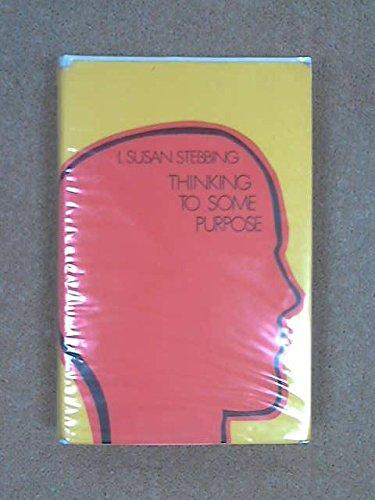
To start with, I’d recommend Thinking to Some Purpose by Susan Stebbing. Published in 1939, it’s a book about various kinds of flawed thinking illustrated by examples from the world of politics. As she says, ‘there is an urgent need for the citizens of a democracy to think well’. Freedom of the press and parliamentary institutions are not enough. My book, Vices of the Mind, was partly inspired by Stebbing’s book. What Stebbing was doing was what I like to call ‘vice epistemology’, the philosophical study of the nature, identity and significance of intellectual vices.
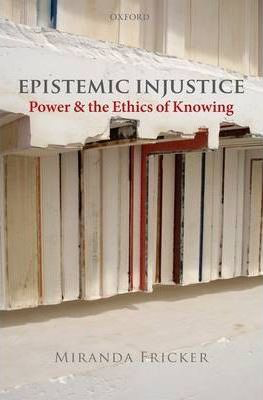
My next two choices are more recent contributions to vice epistemology: Miranda Fricker’s Epistemic Injustice
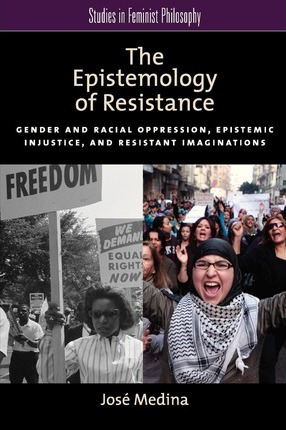
and José Medina’s The Epistemology of Resistance: Gender and Racial Oppression, Epistemic Injustice, and Resistant Imaginations. I think that the importance of these books is hard to overstate.
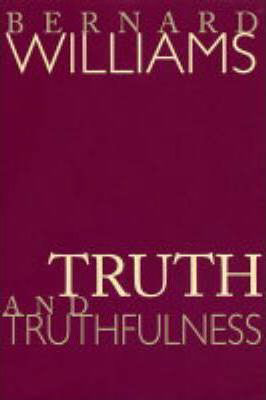
My next choice is Truth and Truthfulness by Bernard Williams. I don’t know if it’s his best book but it’s incredibly rich and relevant to current debates inside and outside Philosophy.
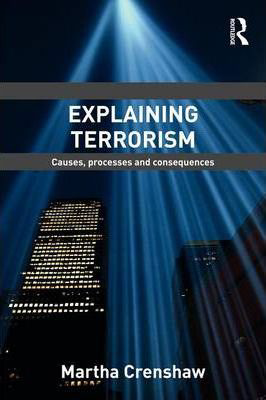
Finally, if I had to pick one book on terrorism it would have to be Explaining Terrorism: Causes, Processes and Consequences by Martha Crenshaw.
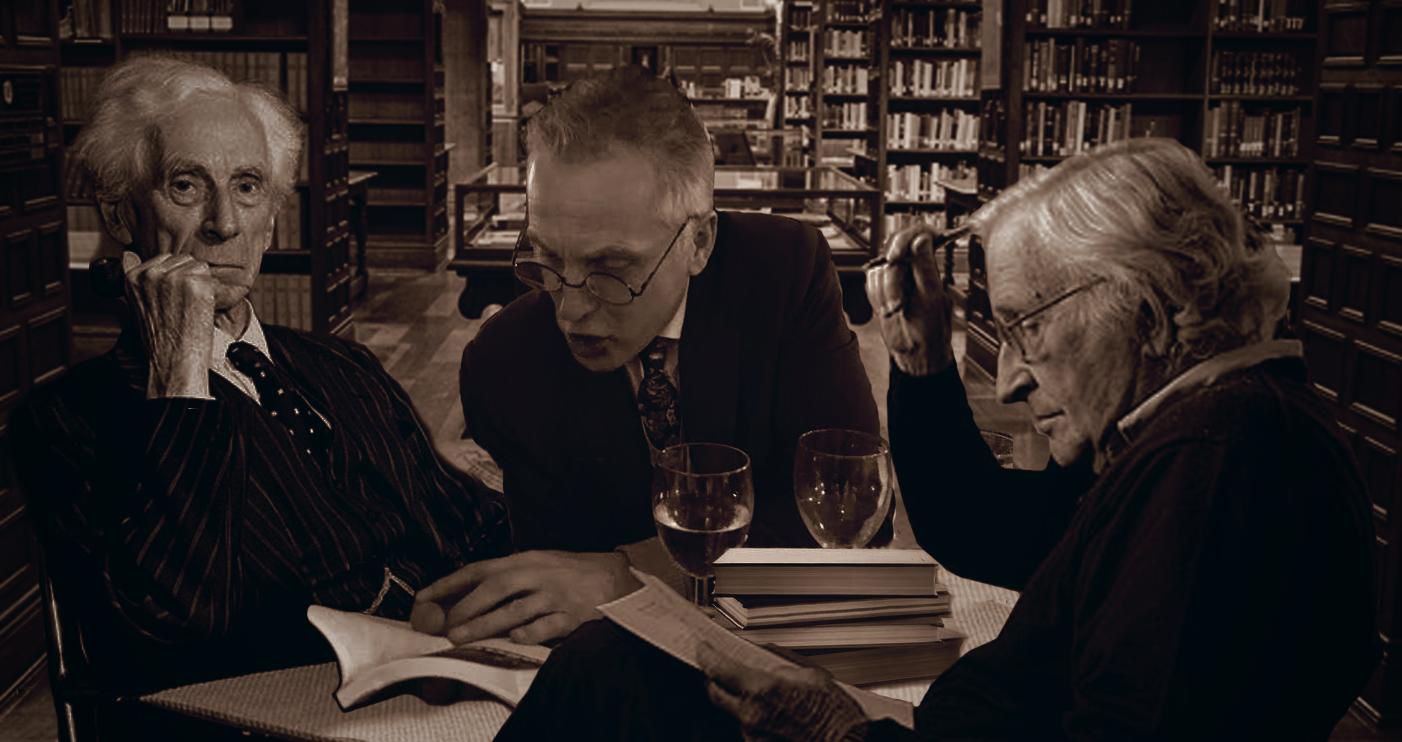
(Archive photo: L. Bibby)
ABOUT THE INTERVIEWER
Richard Marshall is biding his time.
Buy his new book here or his first book here to keep him biding!
End TimesSeries: the first 302